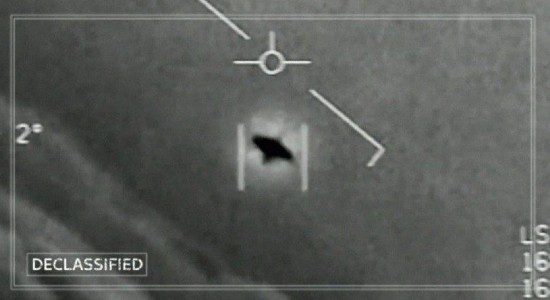From May 19, 2015, “First contact and ‘the great disillusionment’“:
We humans from earth have been looking up at the stars and thinking about this for a very long time. We have been pondering the possibility of intelligent extraterrestrial life since long before H.G. Wells. And we’ve certainly continued to ponder it since then — in stories, novels, movies, scientific papers and theological treatises.
The best of this speculation — whether in stories or in more scholarly non-fiction — builds on this long tradition. Thus when Carl Sagan had Ellie Arroway and her father say, “If it’s just us, seems like an awful waste of space,” he was borrowing from the Danish astronomer Tycho Brahe (1541-1601) who argued, in Burton’s paraphrase, “that he will never believe those great and huge bodies were made to no other use than this that we perceive, to illuminate the earth, a point insensible in respect of the whole.”
The idea that there may be something new under other suns is nothing new under the sun.
That’s why I’m mostly just kind of meh about this Damon Linker piece and the other (semi-)recent posts James McGrath rounds up on the subject. Linker hits on several of the “challenges … to the world’s religious traditions” that first contact with intelligent extraterrestrial life would introduce, but he misses the biggest one — the one explored by both Kepler and Wells. Kepler acknowledges the kind of questions Linker raises — “have they souls to be saved?” But then he quickly skips ahead to the more potentially devastating question: “Are all things made for man?”
That would be the Copernican shift in our theology forced by such an encounter. The main problem would not be that we would need to refine or reform how we think about God, but that we would have to completely upend how we think about ourselves.
If we are alone, then we have top-billing in the universe and we’re the stars of the show. Religious thinkers have repeatedly warned us not to think of ourselves in this way — ever since before the first time the story of Job was performed. But we can’t seem to help it. First contact would force us to recognize that ours is not the only story — that we humans from earth may be, “Not Prince Hamlet … but an attendant lord … almost, at times, the Fool.” Or that we may be more akin to “the infusoria under” someone else’s microscope.
Such a “great disillusionment” might prove to be fatally humiliating or it might prove to be humbling in a more edifying way. (The hum- component of those words is shared with the words human and humus. Like our theology and our philosophy, our language is grounded in earthy, terrestrial concepts.) In such a humbled state, the particularity and parochial, terrestrial contingency of our religious traditions will be an asset, not a liability. It will be a resource for remembering and expanding on the lesson that some of us were fortunate enough to learn early on from Mr. Rogers — that we are unique and special and loved, but so is everyone else.
As for the changes in dogma and doctrine that would (will?) accompany first contact, those will also be significant — forcing us to rethink many things we assumed we knew with certainty. If Klaatu or some Vulcan ambassador lands a starship on the National Mall then it will turn out that, oops, we were wrong about the impossibility of faster-than-light travel. That won’t mean that everything we thought we knew about the speed of light or about physics has to be completely scrapped as useless nonsense, but that we will have the chance to learn there is more to the story than what we thought we knew.
Such a possibility seems to me less like a great disillusionment than an enormously exciting opportunity.













